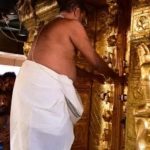Ramadan 2019 – Day2 : Origins of Ramadan
Today is the second day of the the Islamic holy time of Ramadan. Observant Muslims everywhere will be celebrating the revelation of the Quran unto the Prophet Mohammed with fasting and prayer. Muslims believe that the angel Gabriel appeared to Prophet Mohammad and revealed to him the Quran, the Islamic holy book. That revelation, Laylat Al Qadar—or the “Night of Power”—is believed to have occurred during Ramadan. Muslims fast during that month as a way to commemorate the revelation of the Quran. Let us find the origins of Ramadan –
Origins of Ramadan
The origins of Ramadan lie in the life of Mohammad, the founding prophet of Islam, and in the story of his encounter with the divine. When Mohammad was forty, he began to spend time in solitude, thinking on questions which troubled him. To do this, he took on the habit of retreating to a cave within a mountain called al-Ḥirā for a month at a time.

One year, around 610 CE, Mohammad went up to al-Ḥirā on a day like any other, but he was soon visited by the archangel Gabriel, who took hold of Mohammad and commanded terrified man to “read.” Mohammad was so afraid that he refused twice before actually asking what it was he was supposed to read. To which Gabriel replied “Proclaim! in the name of thy Lord and Cherisher, Who Created man, out of a clot of congealed blood: Proclaim! And thy Lord is Most bountiful,–Who taught by the pen–Taught man that which he knew not.”
Gabriel then proclaimed that “Thou art the messenger of God and I am Gabriel,” and Mohammad fled the cave, thinking that he had been accosted by an evil spirit. He ran down the mountainside, and as he did, the angel, Gabriel, appeared in its true form in the sky above him, filling the entire sky, which had become green, which, incidentally, is where Islam gains its official color.
Mohammad returned home
When Mohammad returned home, he told his family of what had happened, and when he sought the wisdom of a particularly devout Christian relative, he was told that he had been chosen as a prophet of God. Shortly after, Mohammad began to receive further revelations from Gabriel, as well as from the realizations of his own heart. According to hadith—the stories about Mohammad’s life—all holy scriptures were sent down during Ramadan, making these 30 days the holiest in this religion.
The first revelation was sent down on Laylat al-Qadr (The night of Power) which is one of the five odd nights of the last ten days of Ramadan. According to hadith, all holy scriptures were sent down during Ramadan. It is further believed that the tablets of Ibrahim, the Torah, the Psalms, the Gospel and the Quran were sent down on 1st, 6th, 12th, 13th and 24th Ramadan, respectively.
History
Besides being the month of revelation, Ramadan bears other historical importance as well. During that month in 624, Muslims won the Battle of Badr, marking their first major victory against enemies who occupied Mecca, the city where Mohammed was born.
Later, in the year 630, Mohammed led the conquest of Mecca during Ramadan, according to The New Arab. And Muslim armies won other key battles over the centuries during Ramadan.
Shiite Muslim worshippers take part in the early morning prayers for Eid al-Fitr after the conclusion of the holy fasting month of Ramadan.









